Sorry, nothing in cart.
Gabantin 100 mg
In Stock
Available Options
| pack size | Price | Quantity | |
|---|---|---|---|
| 100 Capsules | $93.00 | ||
| 200 Capsules | $180.00 | ||
| 300 Capsules | $250.00 | ||
| 50 Capsules | $50.00 |
Quick Overview
| Brand Name: | Gabantin 100 |
| Generic Name: | Neurontin |
| Active Ingredient: | Gabapentin |
| Manufacturer: | Sun Pharmaceutical Industries Ltd |
| Drug Class: | Anticonvulsants |
| Strength: | 100 mg |
| SKU: | GBNT100 |
| Packaging: | 10 Tablet in 1 Strip |
| Treatment: | Neuropathic Pain |
| Time Duration: | Time to work 30 to 60 minutes |
| Price: | $50 to $250 |
Product Description
Gabantin 100 mg is a prescription medication primarily used to treat neuropathic pain and epilepsy. It contains Gabapentin, an anticonvulsant that influences nerve activity in the brain to reduce seizures and nerve pain. This medication is commonly prescribed for conditions such as diabetic neuropathy, postherpetic neuralgia, and fibromyalgia.
This article provides an in-depth understanding of Gabantin 100 mg, covering its uses, dosage, side effects, precautions, and interactions. If you are considering Gabantin 100 mg for your treatment, this guide will help you make an informed decision.
What is Gabantin 100 mg?
Gabantin 100 mg is a formulation of Gabapentin, a drug originally developed to treat epilepsy but widely used today for neuropathic pain conditions. It works by altering nerve signals in the brain and spinal cord, thereby reducing pain and seizures.
Active Ingredient:
- Gabapentin (100 mg per capsule)
Drug Class:
- Anticonvulsant
Manufacturer:
- Manufactured by Sun Pharmaceutical Industries Ltd a reputable pharmaceutical company under strict quality control standards.
Medical Uses of Gabantin 100 mg
Gabantin 100 mg is widely used in various medical conditions related to nerve pain and seizures. Below are its primary indications:
1. Neuropathic Pain
Neuropathic pain arises due to nerve damage, commonly occurring in conditions such as:
- Diabetic Neuropathy – Nerve damage caused by high blood sugar levels in diabetic patients.
- Postherpetic Neuralgia – Persistent pain following a shingles infection.
- Fibromyalgia – Widespread musculoskeletal pain linked to neurological dysfunction.
2. Epilepsy (Seizure Disorders)
Gabapentin is an effective anticonvulsant that helps manage partial seizures by stabilizing electrical activity in the brain.
3. Restless Leg Syndrome (RLS)
Some doctors prescribe Gabantin 100 mg off-label for Restless Leg Syndrome (RLS) to alleviate discomfort and involuntary leg movements.
4. Migraine Prevention
Though not an FDA-approved indication, some studies suggest Gabapentin can help reduce the frequency of migraine headaches.
How Gabantin 100 mg Works
Gabantin 100 mg is a combination medication used in the treatment of chronic (long-lasting) pain caused by nerve damage due to diabetes, shingles or spinal cord injury. It reduces pain by interacting with calcium channels in nerve cells. Unlike opioid painkillers, Gabapentin does not directly affect opioid receptors or act as an anti-inflammatory. Instead, it reduces nerve excitability, preventing excessive pain signals from reaching the brain.
Gabantin 100 mg Dosage & Administration
Recommended Dosage:
- Neuropathic Pain: The usual starting dose is 100-300 mg per day, which can be gradually increased based on patient response.
- Epilepsy: Typically, the starting dose is 300 mg per day, divided into multiple doses.
- Restless Leg Syndrome: 100-300 mg before bedtime is commonly prescribed.
How to Take Gabantin 100 mg?
- Take the capsule with or without food, preferably at bedtime.
- Swallow the capsule whole with a glass of water.
- Maintain a consistent schedule to maximize effectiveness.
Missed Dose:
If you forget a dose, take it as soon as you remember. However, if it’s almost time for your next dose, skip the missed dose and resume your regular schedule.
Overdose Warning:
An overdose of Gabantin 100 mg can cause severe dizziness, confusion, slurred speech, and loss of coordination. Seek immediate medical attention if an overdose is suspected.
Potential Side Effects of Gabantin 100 mg
Like all medications, Gabantin 100 mg may cause side effects. Some are mild and temporary, while others require medical attention.
Common Side Effects:
- Drowsiness
- Dizziness
- Fatigue
- Dry mouth
- Nausea
- Blurred vision
Serious Side Effects:
- Difficulty breathing
- Severe confusion or hallucinations
- Swelling of hands, feet, or face (sign of an allergic reaction)
- Unusual mood changes or suicidal thoughts
If you experience any severe side effects, seek medical help immediately.
Precautions & Warnings
Who Should Avoid Gabantin 100 mg?
- Patients allergic to Gabapentin
- People with severe kidney disorders
- Those with a history of drug or alcohol addiction
Special Precautions:
- Pregnant and Breastfeeding Women: Consult your doctor before use.
- Elderly Patients: Higher risk of dizziness and confusion.
- Driving & Machinery: Gabantin 100 mg may cause drowsiness, so avoid activities requiring full concentration.
Drug Interactions
Gabantin 100 mg can interact with several medications, altering its effectiveness or increasing side effects.
Common Interactions Include:
- Opioid Painkillers (e.g., Morphine, Tramadol): Increased risk of drowsiness and respiratory depression.
- Alcohol: May enhance dizziness and sedation.
- Antacids (Containing Aluminum or Magnesium): Reduce Gabapentin absorption; take Gabantin 2 hours after antacids.
- Diabetes Medications (e.g., Metformin): Potential alteration in blood sugar levels.
FAQs About Gabantin 100 mg
1. Is Gabantin 100 mg safe for long-term use?
Yes, but long-term use should be monitored by a doctor to avoid dependency and side effects.
2. How long does Gabantin 100 mg take to work?
Effects may begin within 1-3 hours, but full benefits may take a few weeks.
3. Can I stop taking Gabantin 100 mg suddenly?
No. Gradual tapering is essential to avoid withdrawal symptoms.
4. Does Gabantin 100 mg cause weight gain?
Some patients experience weight gain due to increased appetite and water retention.
5. Can I take Gabantin 100 mg with painkillers?
Yes, but avoid opioid painkillers unless prescribed to prevent excessive drowsiness.
Additional information
| pack size | 50 Capsules, 100 Capsules, 200 Capsules, 300 Capsules |
|---|

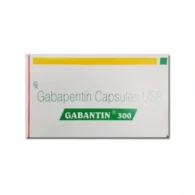
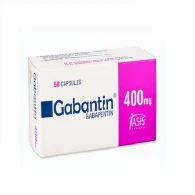
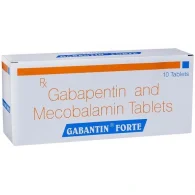

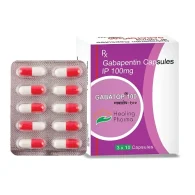
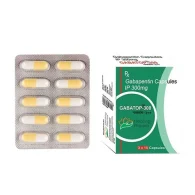
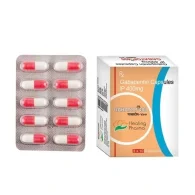

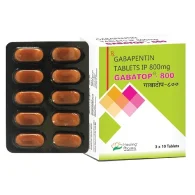
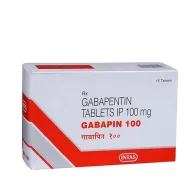
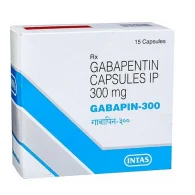

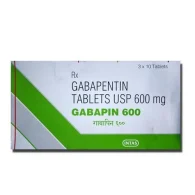
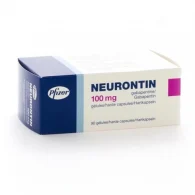
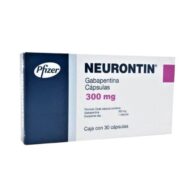
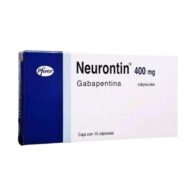
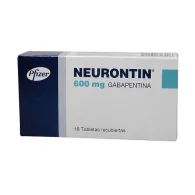

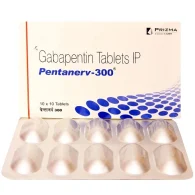
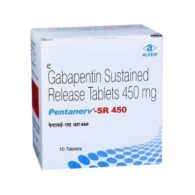
Reviews
There are no reviews yet.